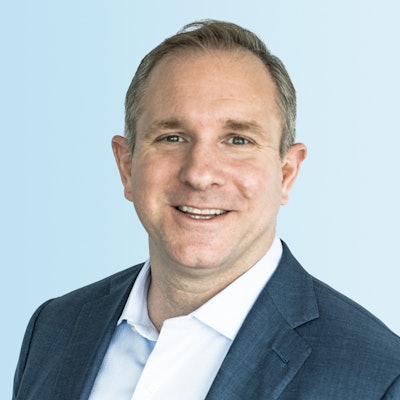The detrimental ripple results of the COVID-19 pandemic on greater schooling gained’t be going away any time quickly, and pupil psychological well being is turning into an more and more pressing concern, in response to a current EAB report. Dr. Ed Venit
Dr. Ed Venit
The white paper, “Navigating the Recovery: A Long Term Perspective on Student Success Following the Pandemic and What Actions You Can Take Now,” notes three pupil success points that had been made worse by the pandemic: Okay-12 studying loss, excessive workers turnover charges in greater schooling, and pupil psychological well being wants.
“The pandemic exacerbated long-standing schooling fairness points and will in the end reverse a long time of labor on entry and completion,” the report famous. “We should always method this problem as a possibility to lastly eradicate many unfair limitations to school completion whereas strengthening our price proposition for tomorrow’s college students.”
Within the coming years, college students who went by way of their education through the pandemic would be the majority of scholars in greater schooling, the report notes.
“We discovered that pupil success leaders ought to anticipate not less than 5 extra years of elevated pupil wants,” the report famous. “Decrease Okay-12 check scores prolong again to elementary faculty and foretell heightened demand on educational assist workers. Dramatically elevated psychological well being considerations current an evolving problem that most colleges will not be but prepared to fulfill. In the meantime, labor market churn amongst pupil assist workers hinders efforts to prepare, but additionally creates an alternative to implement daring new methods.”
Of those three points, pupil psychological well being needs to be the highest concern, mentioned EAB Managing Director Dr. Ed Venit, creator of the white paper.
“That is a not new problem, within the sense that we have had psychological well being considerations for a very long time amongst our college students, and there is been a dramatic uptick over the final decade within the calls for on companies,” Venit mentioned. “However actually now, it is turning into a campus-wide concern, and we’ve got information that we have discovered from different experiences which might be on the market, which you noticed replicated within the white paper, that says that is now a bigtime pupil success problem in a approach that it could not have been totally appreciated earlier than the pandemic however can now not be ignored in that regard due to simply how significant it’s on pupil attrition.”
The report describes the state of pupil psychological well being as a full-blown disaster for the reason that begin of the pandemic, with numerous stressors negatively affecting college students. The necessity for campus psychological well being companies is escalating, additionally partly as a result of doubtlessly much less stigma round psychological well being assist, mentioned EAB Affiliate Director Kate Brown.
And traditional approaches to deal with this concern simply will not be sufficient anymore, Brown mentioned.
 Kate Brown
Kate Brown
This name has raised questions from school and educational leaders about easy methods to greatest method attainable treatments, together with confusion about the roles they need to play, budgetary considerations, and being overwhelmed from the slew of choices on the market, Brown and Venit mentioned.
Campus psychological well being companies must additionally evolve to accommodate extra demographics, Brown mentioned.
“What we have seen pre-COVID and simply historically the established order method on campuses to psychological well being assist being a pupil visits the counseling middle …, that tends to favor cisgender, feminine, white college students and their preferences,” Brown mentioned. “And we have definitely seen over the past couple of years the rising significance of offering assist for college kids from a wide range of completely different demographic teams and ensuring there are numerous pathways to that assist. We will not assume that there is one pathway and that fits each pupil preferences and wishes. And that is so necessary as a result of if we do not have a wide range of pathways, that signifies that some college students will not be going to entry assist.”
The identical want to enhance exists so that faculties can higher serve the LGBTQ+ communities on campus. Failing on this regard might have horrible repercussions, Venit mentioned.
“Once you take a look at the numbers round psychological well being considerations on campus, they’re going to be elevated in your LGBTQ+ inhabitants in some fairly vital methods,” Venit mentioned. “And right here we’re speaking about tremendous excessive stakes stuff like suicide … and issues alongside the strains right here that we should be cautious of and conscious for. If faculties aren’t placing that little further twist on their work right here to be addressing college students who could also be going by way of these conversations with themselves, questioning what to do, and if they’re alone or not in these regards, it is an space of focus for lots of campuses.”
